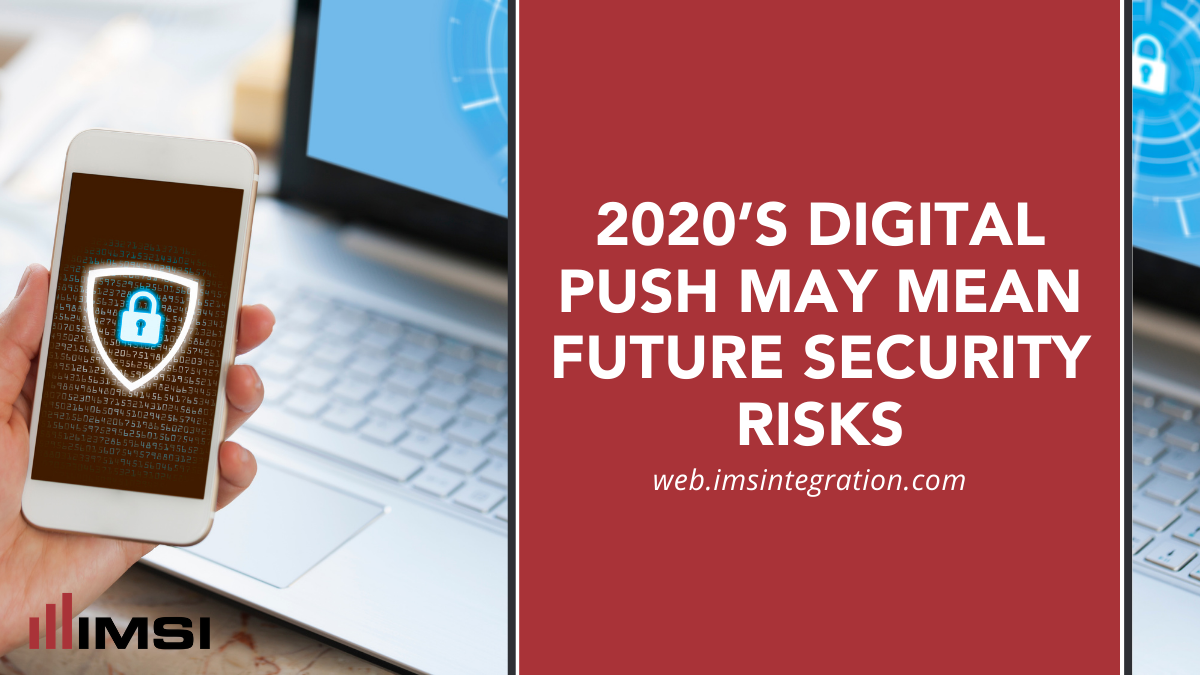In 2020, credit unions prioritized service over expansion. But creating new digital solutions for members and employees was a whirlwind of uncertainty and this year, leaders will need to stay extra vigilant when it comes to credit union cybersecurity.
Now, many credit unions are focused again on expansion. 2021 looks to be the year 2020 was meant to be, in terms of growth. For this to happen, however, credit unions must protect themselves from cybersecurity setbacks. Here’s why:
Credit Union Cybersecurity
Your credit union, just like any other financial institution right now, has likely checked and rechecked your credit union cybersecurity solutions and protocols in the wake of rising fraudulent activity and cyber breaches taking place all over the country.
Credit union IT professionals have been working tirelessly for the last year to ensure all firewalls and anti-malware programs are present and running on all devices in your network.
The good news is, in most cases, your credit union is at low risk of being breached through your many security systems and protocols. But there is a chink in your credit union’s armor – and it’s your employees.
The Chink in Your Credit Union Armor – Your Employees
Your employees are one of the best assets your credit union has – and unfortunately, they are also often inadvertently to blame for cybersecurity breaches.
According to Varonis, 95% of cybersecurity breaches are caused by human error. And in the last year, your employees have been thrown out of their element and into new remote and hybrid work models, which increases the chances of a breach.
Even if your employees are only performing their work on approved devices, it’s still vitally important to continue educating them on new threats and how to avoid them.
Sending alerts, reminders, and educational material about phishing (one of the top methods employees fall for when it comes to cybersecurity breaches) is a great way to foster a cyber security-minded work culture and bridge gaps in tech-based employee skills.
Some common features of phishing emails to look out for include:
- Offers that seem too good to be true. Phishing emails often have some kind of amazing, lucrative deal for recipients or even include information about a product or prize you’ve “won.”
- Sense of Urgency. The point of these emails is to entice readers to “act now” or “click here” in a short amount of time or they risk losing the “special offer.”
- Hyperlinks. Cybercriminals often use hyperlinks to mask the real link they want you to click on. To see if a link is legitimate, hold your mouse over the linked text to reveal the real link you will be navigating to. Be careful and check for typos in the link, as many phishing emails say they’re taking you to a legitimate website like “yourbank.com” but if you look closely, the “m” is really an “r” and an “n” set together to trick you into thinking the link is legitimate.
- Attachments. If you are not expecting emails with attachments, or the attachment seems odd, don’t click on it. These attachments may have viruses or other malware that are released upon opening.
- Unusual sender. The cardinal rule of employee-based cybersecurity is this – if you aren’t expecting an email from someone, don’t open it – especially if it has any of the abovementioned hallmarks of a phishing email.
Kick Start Your Credit Union’s Digital Expansion
Keep your credit union moving forward. IMS Integration offers premiere solutions for Keystone users:
- Corelation Solutions: Skip a Pay, Reward Checking, and Online Courtesy Pay+.
- Infuzion: This powerful tool was developed to streamline complex functions without spending hours developing scripts.
- Web Loan Applications: Loans are critical to your credit union’s success. Enhance your member experience by implementing our online loan applications system, which tightly integrates with KeyStone core.
If you want to explore our offerings further, or you have questions about our solutions, contact us today.


